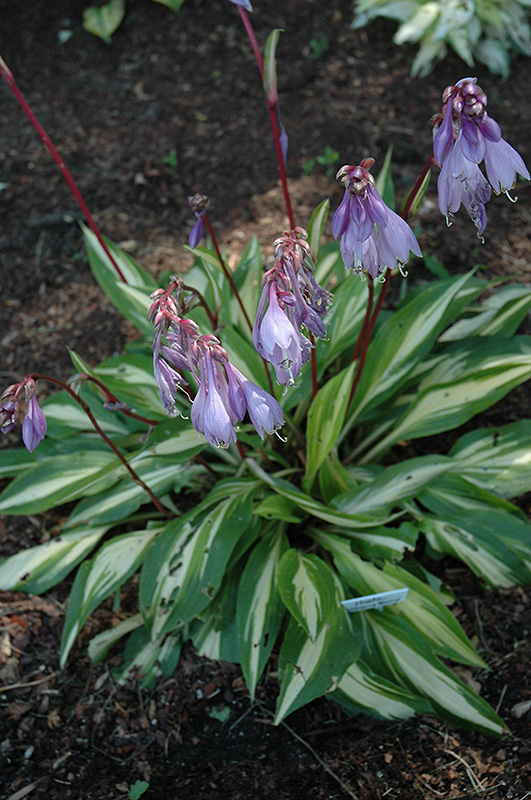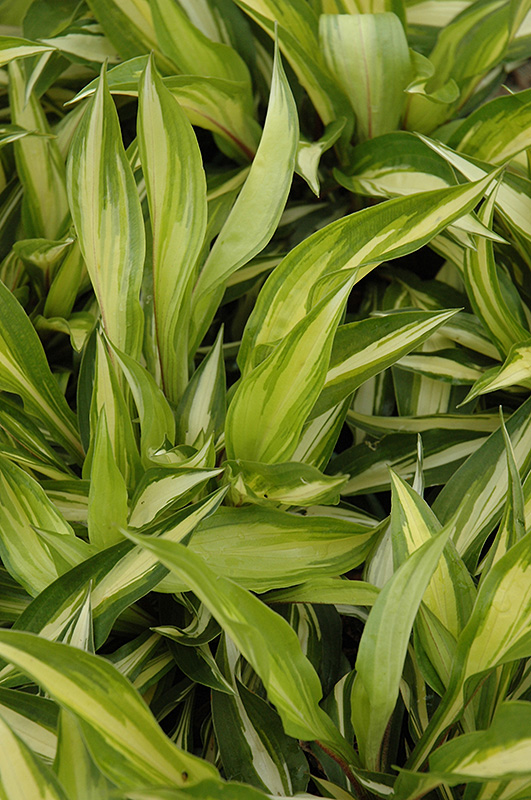Digging deeperPlant Library
Plant Height: 10 inches
Flower Height: 18 inches
Spacing: 15 inches
Sunlight:
![]()
![]()
Hardiness Zone: 3
Other Names: Plantain Lily, Funkia
Description:
Attractive hosta with elliptical, creamy-gold leaves, edged with green; medium sized plant with lavender flowers
Ornamental Features
Cherry Berry Hosta features dainty spikes of lavender tubular flowers rising above the foliage from mid to late summer. Its attractive small textured narrow leaves remain creamy white in color with showy green variegation throughout the season.
Landscape Attributes
Cherry Berry Hosta is a dense herbaceous perennial with tall flower stalks held atop a low mound of foliage. Its relatively fine texture sets it apart from other garden plants with less refined foliage.
This is a relatively low maintenance plant, and is best cleaned up in early spring before it resumes active growth for the season. It is a good choice for attracting hummingbirds to your yard. Gardeners should be aware of the following characteristic(s) that may warrant special consideration;
- Insects
Cherry Berry Hosta is recommended for the following landscape applications;
- Accent
- Mass Planting
- Border Edging
- General Garden Use
Planting & Growing
Cherry Berry Hosta will grow to be about 10 inches tall at maturity extending to 18 inches tall with the flowers, with a spread of 18 inches. When grown in masses or used as a bedding plant, individual plants should be spaced approximately 15 inches apart. Its foliage tends to remain low and dense right to the ground. It grows at a slow rate, and under ideal conditions can be expected to live for approximately 10 years. As an herbaceous perennial, this plant will usually die back to the crown each winter, and will regrow from the base each spring. Be careful not to disturb the crown in late winter when it may not be readily seen!
This plant does best in partial shade to shade. It prefers to grow in average to moist conditions, and shouldn't be allowed to dry out. It is not particular as to soil type or pH. It is somewhat tolerant of urban pollution. This particular variety is an interspecific hybrid, and parts of it are known to be toxic to humans and animals, so care should be exercised in planting it around children and pets. It can be propagated by division; however, as a cultivated variety, be aware that it may be subject to certain restrictions or prohibitions on propagation.
A NetPS Plant Finder tool
This Plant Library is for informational purposes only. We may or may not carry the items listed. During many times of the year, we may carry many more plants in our store than are listed in the Plant Library. Please contact us directly at 303-690-4722 or visit our store for current availability and for assistance.

